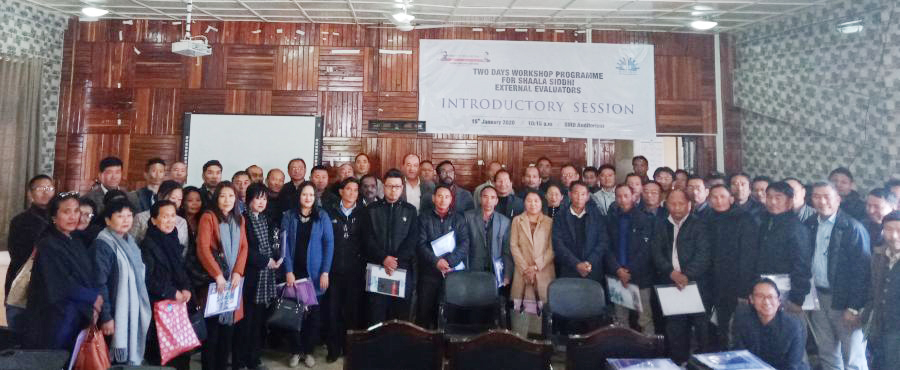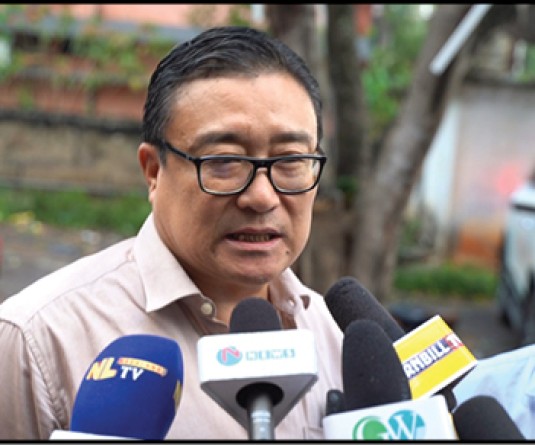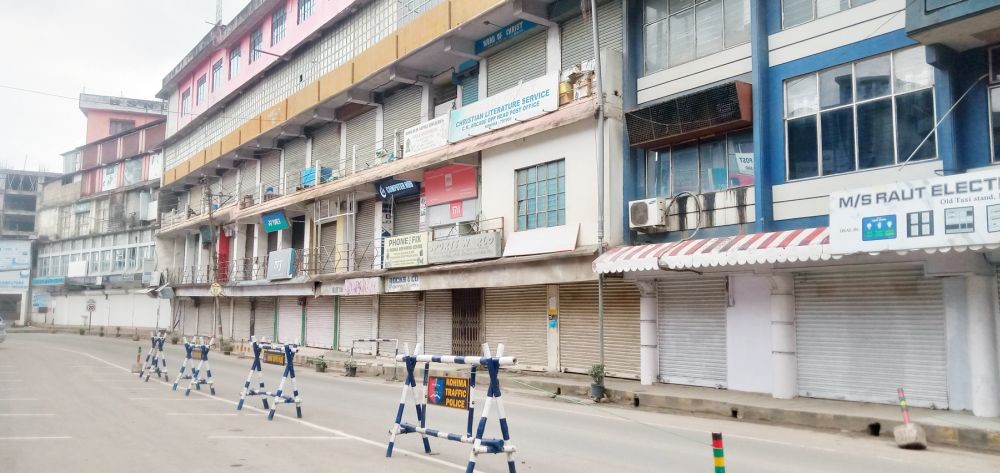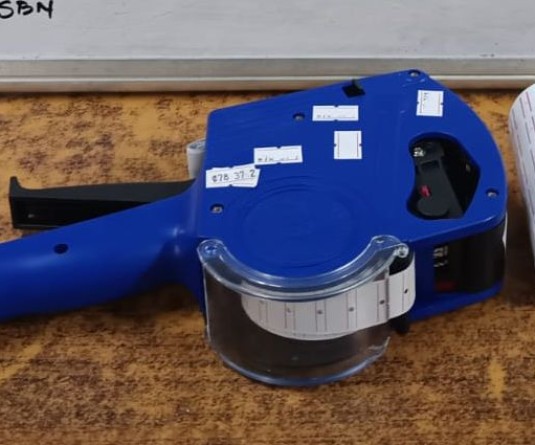Workshop prog for Shaala Siddhi external evaluators underway in Kohima

Shanavas and others during the introductory session of the workshop programme for Shaala Siddhi external evaluators in Kohima on January 15. (Morung Photo)
Our Correspondent
Kohima | January 15
A two-day long workshop for Shaala Siddhi External Evaluators under the aegis of Samagra Shiksha Nagaland got underway here at SIRD Auditorium on January 15. Senior SDEOs, SDEOs, JEOs, AEOs and SMAs from all over the state registered for the workshop, which will continue till January 16.
Shaala Siddhi, a programme under Ministry of Human Resource Development, is a self evaluation framework aimed at improving school performance and to provide quality education to all children.
Speaking at the introductory session, Shanavas C, Principal Director, Department of School Education called upon the evaluators to work together for the betterment of education system in the state. He also stressed on the need to have proper checking mechanism.
The Principal Director advocated the need for proper coordination between Samagra Shiksha and Directorate of School Education for better result and performance of the schools.
He underlined the need to have proper school infrastructure and make the building presentable for comfort of school children to study. He called for checking proxy teachers and to ensure that the package of midday meal reache the schools without any hiccup.
Liyalo Apon, Assistant Mission Director, Samagra Shiksha Nagaland in his keynote address said that Shaala Siddhi is a National programme on school standards and evaluations. It is universally recognized that school evaluation is a fundamental necessity for improvement of school quality, he said adding that there is evidence available across the countries that high performing schools have school evaluation or inspection practices in place.
The overarching policy objectives of Shaala Siddhi is to ensure that school evaluation contributes to the improvement or learners outcomes through improved school practices.
“The need for effective schools and improving school performance is increasingly felt in the Indian education system to provide quality education for all children,” he said.
It is initiated by National Institute of Educational Planning and Administration (NIEPA) under the aegis of Union Ministry of Human Resource Development.
NPSSE visualizes School Evaluation as the means and School Improvement as the goal. It refers to evaluating the individual school and its performance in a holistic and continuous manner leading to school improvement in an incremental manner.
The major objectives of NPSSE are to develop a technically sound conceptual framework, methodology, instrument, and process of school evaluation to suit the diversity of Indian schools; to develop a critical mass of human resource for adaptation and contextualization of the school evaluation framework and practices across states. The programme envisions reaching 1.5 million schools in the country through a comprehensive system of school evaluation.
As part of the endeavor, the School Standards and Evaluation Framework (SSEF) has been developed as an instrument for evaluating school performance.
“This will enable the school to evaluate its performance against the well-defined criteria in a focused and strategic manner,” Apon said.
The SSEF comprises seven 'Key Domains' as the significant criteria for evaluating performance of schools. The framework has been developed through a participatory and mutual consensus approach on "How to evaluate diversified Indian schools for Incremental Improvement."
The SSEF has the flexibility that makes it eminently suitable for adaptation, contextualization and translation in state-specific languages. It has been designed as a strategic instrument for both self and external evaluation.
As part of the SSEF, a 'School Evaluation Dashboard e-Samiksha' has been developed to facilitate each school to provide consolidated evaluation report, including areas prioritized for improvement.
Stating that the School Evaluation Dashboard is developed both in print and digitized format, he said the Dashboard, obtained from each school, will be consolidated, at cluster, block, district, State and national level for identifying school-specific needs and common areas of intervention to improve school performance.
In order to translate the objectives of NBSSE to institutionalize, school evaluation for improvement, a strong operational plan has been formulated to extend support to each state.
A dedicated unit at NEIPA is leading this programme under the guidance of National Technical Group (NTG) and in strong collaboration with the states.
Timothy Thong, Deputy Mission Director Samagra Shiksha Nagaland said that school is an institutional space for learning and is expected to translate all policy changes.
“School must be dynamic, must change. Must attract and must regain public trust,” he said.
He said that Shaala Siddhi aim to review school performance to validate, complement and supplement the school self evaluation.
It also aimed to help the school to identity its strengths and areas where they can improve, to support the school to identify its prioritization for incremental improvement of school performance and to facilitate the school to develop an action plan and support towards improvement
Further, he said that school evaluation refers to evaluating the individual school, its performance in a holistic and continuous manner.
Urging the officers to make Nagaland a successful state as far as the exercise of Shaala Siddhi is concerned, Thong said that the evaluators will be soon be visiting one third of schools in Nagaland.
Meanwhile, day two (January 16) session will start from 9:00 AM onwards. It will be marked by discussion on external evaluation guidelines, Shaala Siddhi web portal, creating external users etc etc.




